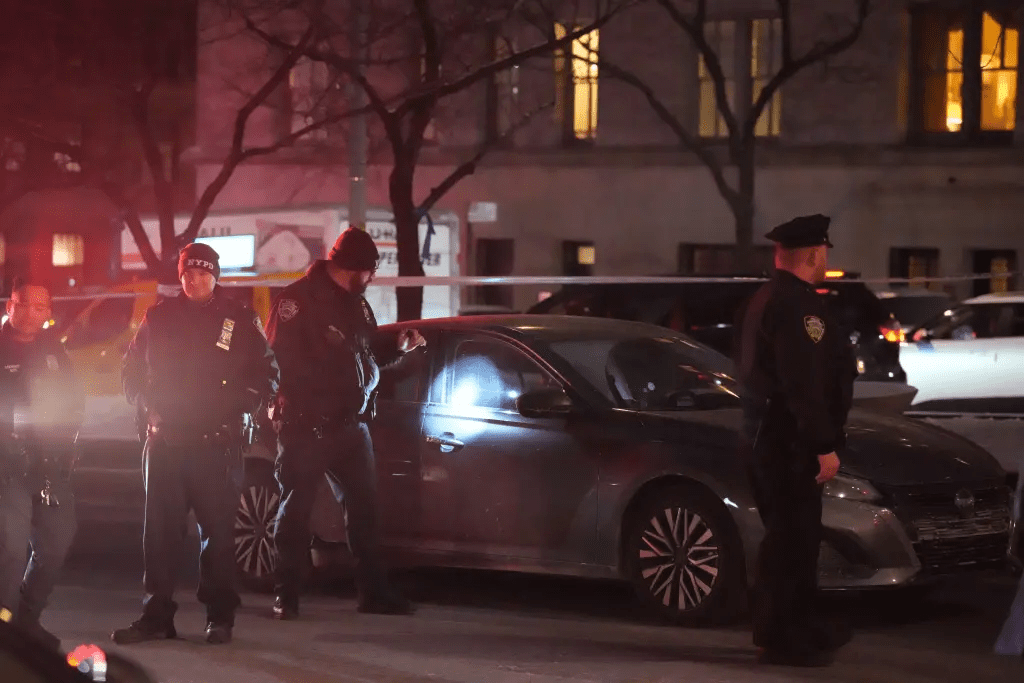Brooklyn Woman Who Admitted “F-ck These Cops” After Mowing Down NYPD Officer Sentenced Lightly Despite Serious Assault
In a verdict that has sparked anger among New York City’s law-enforcement community, 25-year-old Brooklyn resident Sahara Dula has been sentenced to just two years in prison after she admitted to deliberately driving her car into a uniformed officer in January 2024 and shouting “F-k these cops” immediately after the crash. The incident occurred on Park Avenue near East 71st Street as police responded to an unrelated robbery; video shows Dula racing the wrong way down a one-way southbound lane for roughly 10 blocks before striking the officer. The injured cop, whose leg was broken, rolled onto the hood of the Lexus and landed on the street, according to court records.

In court, Dula pleaded guilty in June to assault in the second degree. Although prosecutors had previously indicted her on more serious counts — including attempted aggravated assault upon a police officer, operating a vehicle while impaired by drugs and reckless driving — she avoided the maximum sentence, reportedly capped at seven years for assault in the second degree. The Police Benevolent Association, which represents rank-and-file NYPD officers, slammed the decision as “not nearly enough,” pointing out the rare admission of intentional targeting of a police officer and arguing that leniency in such cases sends the wrong message.
Court documents reveal that on the afternoon of January 17 2024, Dula, under the influence of marijuana, navigated her black Lexus northbound against traffic on Park Avenue. At one point, an officer instructed her to correct her lane. Instead of complying, she accelerated, struck the officer, and then shouted profanity at law-enforcement on the scene. Marijuana and rolling papers were later found in the vehicle, prosecutors say. Dula’s attorney noted that her client, a college graduate with a degree in criminal justice, suffers from bipolar disorder and was undergoing treatment.

For many in the city’s law-enforcement community, the case highlights a broader concern: attacks on police officers that go punished by what they regard as insufficient sentences. The officer who was injured continues to recover from his fractured leg and related injuries, and the union argues that the optics of a two-year sentence in such a brazen assault undermine efforts to enforce accountability.
On the judicial side, the presiding judge considered Dula’s medical condition, educational background, and lack of prior felony convictions in determining the sentence. Still, critics contend that those mitigating factors should not overshadow the deliberate nature of the attack. Some local legal analysts note that second-degree assault carries a broad sentencing range, leaving much discretion to the judge.

For New Yorkers, this case is more than an isolated incident. It taps into ongoing debates about public safety, sentencing practices and the treatment of crimes involving law-enforcement targets. While the city has seen efforts to reform incarceration and emphasize rehabilitation, many officers and patrol-unit supervisors believe that intentional attacks on police should be treated with maximum severity — both as a matter of justice and deterrence.
In Dula’s case, the contrast is stark: a 10-block wrong-way dash, an admitted target of a uniformed officer doing his duty, and a headline-making banner of defiance at the scene. The decision now lies with the broader system: will this sentence be viewed as an exception or a symbol of leniency? In the view of the police union, the message sent may well influence how future assaults on officers are prosecuted, defended and punished.
With three years of probation to follow her prison term, Dula will return to society in the not-too-distant future. Meanwhile, the injured officer and his colleagues continue to question whether justice in his case was fully served — and where the line should be drawn when a public servant becomes a target in plain sight.



